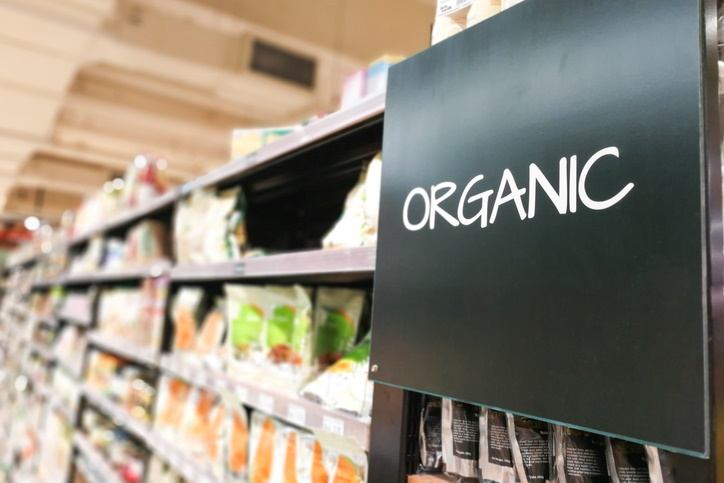Labeling terms referring to organic production and the EU organic logo make it easier for consumers to identify organic products and ensure that organic food meets strict production and processing conditions, in accordance with the requirements of the European Union. In line with the general review of organic production, the new Regulation (EU) no 2018/848, which will enter into force in January 2022, introduces some evolutions, but no revolution, in the processing and labeling of organic food products.
A wider range of products can be certified organic.
The new Organic Regulation will cover a wider range of products, which means that more products are likely to be certified organic.
It will include some other products “closely linked to agriculture”In addition to live or unprocessed agricultural products, seeds and other plant reproductive materials that are already covered today. These products are listed in Annex I of Regulation (EU) 2018/848 and will include, for example, sea salt or essential oils other than those intended to be consumed as food; essential oils for food use were already covered by the previous one. organic rules.
In addition, the Commission will be empowered to add more products to that list.
Requirements for organic processed food products
Processed foods must be produced primarily from organic agricultural ingredients. Some non-organic ingredients of agricultural origin can also be used, but only if they have been authorized for use in organic production and have been used in a low proportion, that is, up to 5% of the agricultural ingredients of the product by weight. The same principle applies to other substances such as food additives or processing aids.
Starting in January 2022, processed foods could also be made primarily from “other products closely linked to agriculture” intended to be used as Annex I listed foods, in addition to agricultural ingredients.
Regarding the use of food additives and other substances, although the principle of positive lists remains the same, some of them are still being updated. Of relevance, the list of authorized non-organic ingredients will be drastically reduced and their use will be explicitly excluded for fortification purposes, echoing a recent ECJ decision.
Analyzes of all already authorized processing aids will be carried out and could lead to a review of the current list of authorized processing aids. However, for now, the positive lists for processing aids and food additives remain the same as above. Furthermore, the use of flavorings will be restricted, as only natural flavorings originating from the aforementioned ingredients (the so-called ‘natural flavors X’) will be allowed to be used in organic processing.
With regard to prohibited processing and treatment, the use of GMOs and ionizing radiation is still prohibited, as they are incompatible with the concept of organic production and consumer perception of organic products. The new Organic Regulation also explicitly excludes foods that contain or consist of modified nanomaterials in the production of processed organic foods.
Labeling of origin of organic products
The use of the EU organic logo is still mandatory for prepackaged organic food and must be accompanied by an indication of where the agricultural raw materials were grown, to avoid misleading practices and any possible confusion about the Union or not. -Union of origin of a product.
Until the revision of the Organic Regulation, the origin of the raw material had to be a reference to agriculture in the EU and / or outside the EU, where small amounts (up to 2% by weight of the total weight) of ingredients. In case all agricultural raw materials have been grown in one country, the EU or non-EU origin of the agricultural raw materials can be supplemented or replaced by that country.
Consequently, the new Organic Regulation increases the flexibility of origin labeling, as the name of a country and a region (such as ‘Brittany’ in France) can also replace or complement the origin ‘EU’ and ‘outside the EU’. of raw materials, provided that all agricultural raw materials have been grown in that region. In addition, the threshold for small amounts of ingredients that can be ignored in relation to the EU or non-EU indication is increased from 2% to 5% of the total amount by weight.
Those changes are likely to affect not only EU operators, but also third country producers, who will have to adhere to the same set of rules. Therefore, our next and last article on organic food products will focus on this matter.
.

